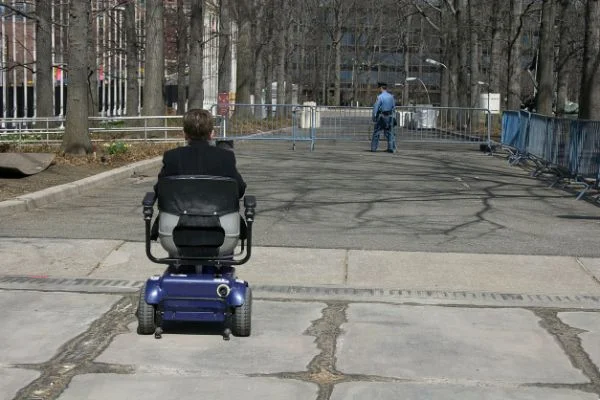New App Bridges Communication Gap Between Police and Individuals with Disabilities

Many individuals with mental disabilities have issues communicating properly or acting socially appropriately in a given situation. These communication issues can be especially problematic if a disabled individual encounters law enforcement or other first responders. The police often have no way of knowing that someone has a mental disability and often have no training on how to recognize a disability.
Although it may appear that an individual is refusing to comply with an officer’s orders, it is sometimes the case that the person doesn’t understand the order or doesn’t know how to comply. A person may be acting strangely or erratically, and a police officer may interpret this behavior as aggression. Situations involving law enforcement and those with mental disabilities can have tragic and even deadly results.
Bridging the Communication Gap
Steven Mase and G.L. Hoffman worked closely with a police officer in Minnesota, parents, and caretakers of individuals with mental disabilities, and other members of the community in developing an app that could help bridge that communication app between people with mental disabilities and first responders. The Vitals mobile app promotes safer interactions by allowing authorized personnel to view a personalized digital profile of individuals with conditions that may affect their communication abilities.
The information on the app is specific to the individual which is very important because every individual with a mental disability is different. The Vitals app pairs with a Bluetooth beacon that an individual wears that sends a signal to the law enforcement officer who also has the app. The information transmitted to the app includes the individual’s name, contact information, and condition. It also includes important information about known triggers and helpful de-escalation techniques. The app also allows a family member or caregiver to upload a video message directed to the individual with the disability letting them know that law enforcement is here to help.
Developers of the Vitals app are hopeful that with widespread use it can change the tone of interactions between law enforcement and people with mental disabilities. The app is currently being used by 1,800 individuals and 60 law enforcement agencies in Minnesota. The app will hopefully expand to other states soon.
If you or a loved one has a mental disability and has been arrested or convicted of a crime, you need an experienced criminal defense attorney on your side. Elizabeth Kelley specializes in representing individuals with mental illness or intellectual/developmental disability. To schedule a consultation call (509) 991-7058.


